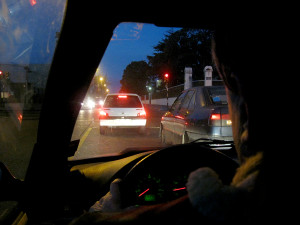As parents, we try to warn our kids about the dangers associated with driving. We want to keep them safe so we talk to them about texting and driving, drinking and driving, wearing their seatbelt, etc., but one danger we often fail to discuss is drowsy driving. And drowsy driving kills almost as many people as drunk driving. In fact, drivers who have not had enough sleep are at the same risk of being in an accident as a driver who is at or a little above the drunk driving limit of 0.08 BAC. Here is what you need to know and steps you can take to protect yourself and your driving family members:
When you are sleep deprived, clusters of brain neurons actually take a break. This is dangerous because those neurons are the transmitters of messages from your brain to your body. When a large enough group of brain neurons fall asleep or take a break, a driver’s attention can decline. Not to mention the obvious: if you nod off at the wheel, you are not focused on driving at all.
The National Highway Traffic Safety Administration (NHTSA) estimates drowsy drivers are involved in 16.5% of all fatal crashes and 7 percent of all non-fatal crashes. To understand just how dangerous drowsy driving is, consider this: the NHTSA estimates 8,000 people a year are killed due to drowsy driving and drunk driving kills about 10,500 people each year.
Unfortunately, there is no easy test like a breathalyzer that can determine when you are too sleepy to drive. But there are some things you should consider in order to keep your family safe:
- If you or a loved one is a heavy snorer, that person may have sleep apnea, which means they may need a CPAP machine in order to get a good night sleep every night. Heavy snorers should be evaluated for a possible sleep disorder.
- Avoid taking medications that can cause sleepiness if you need to drive.
- Make sure you get enough sleep every night. According to most experts, adults typically need 7 to 9 hours of sleep per night, and teenagers could need 10 hours.
- If you are driving and start to feel drowsy, pull over to a safe spot to rest. After resting, get out of your car and walk around for a few minutes before resuming driving.
- Of course, caffeine will temporarily help drowsiness, but it can take caffeine 45 minutes for it to have its full effect.
- Remember that if you only get four to five hours of sleep, you quadruple your chances of being involved in an accident compared to a driver who got a full night’s rest.
- Do not accumulate a big sleep debt. If you stay up too long over the course of several nights, it will take more than an hour nap to pay off your sleep debt.
- Treat sleep as a necessity not a luxury.
- If you are a troubled sleeper, there are a plethora of websites that offer tips on how to become a better sleeper. Make a concerted effort to be a better sleeper.
Sleep well and drive safe. And if you or a loved one is in an accident, give us a call.
Nashville: 615-669-3993
Murfreesboro: 615-867-9900
Brentwood: 615-742-4880
Toll-free: 866-812-8787
 Tennessee Injury Law Center
Tennessee Injury Law Center


